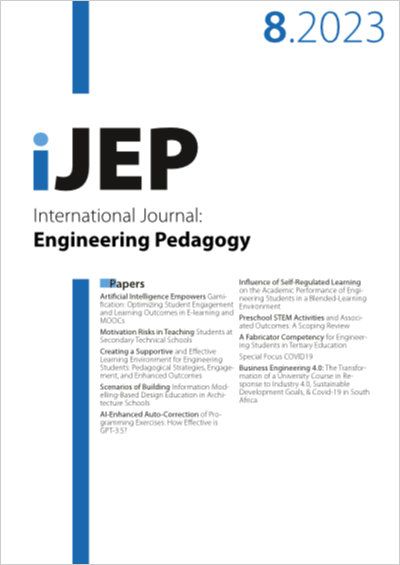Artificial Intelligence Empowers Gamification: Optimizing Student Engagement and Learning Outcomes in E-learning and MOOCs
DOI:
https://doi.org/10.3991/ijep.v13i8.40853Keywords:
MOOC, Gamification, Assessment, Automatic question generation, Natural language processing, E-Learning, ChatGPT, multiple choice questionsAbstract
In this era of Artificial Intelligence (AI) growth, characterized by advances in the Large Language Models (LLMs) used by ChatGPT and Bard, this study examines the effects of gamification and Automatic Question Generation (AQG) on student engagement and learning outcomes in the context of a Massive Open Online Course (MOOC). AQG, implemented via a Moodle plugin, transforms conventional assessments into an interactive, gamified experience, leveraging the “test effect” to improve learning outcomes. Research with 100 fifth-graders in a primary and secondary school shows that gamified assessments significantly boost student motivation and learning outcomes compared with traditional methods. The custom Moodle plugin facilitates the AQG process, generating contextually relevant and grammatically correct Multiple-Choice Questions (MCQs) from course content. The result is a dynamic, personalized assessment experience aimed at optimizing student retention. This paper concludes by discussing the implications of the study for educators and highlighting potential directions for future research.
Downloads
Published
How to Cite
Issue
Section
License
Copyright (c) 2023 Younes-Aziz BACHIRI, Hicham Mouncif, Belaid Bouikhalene

This work is licensed under a Creative Commons Attribution 4.0 International License.


